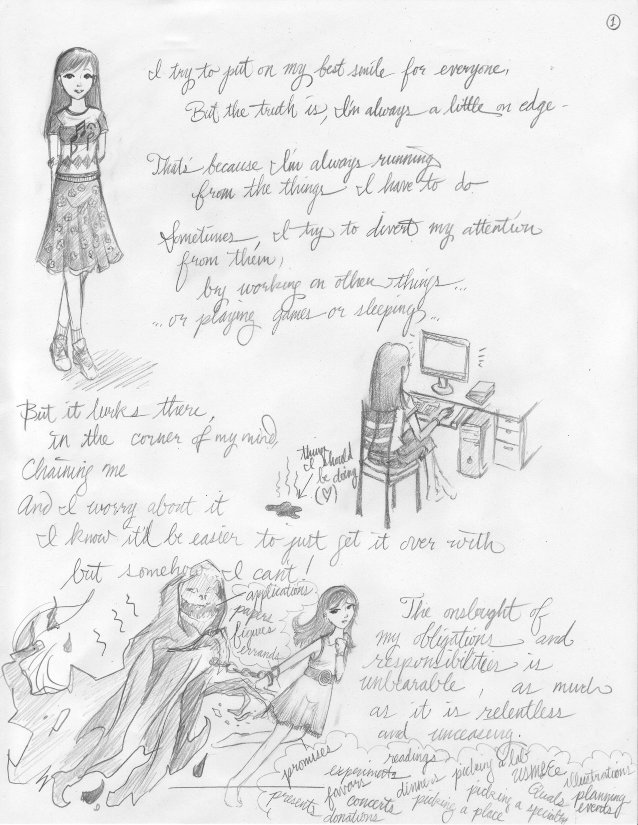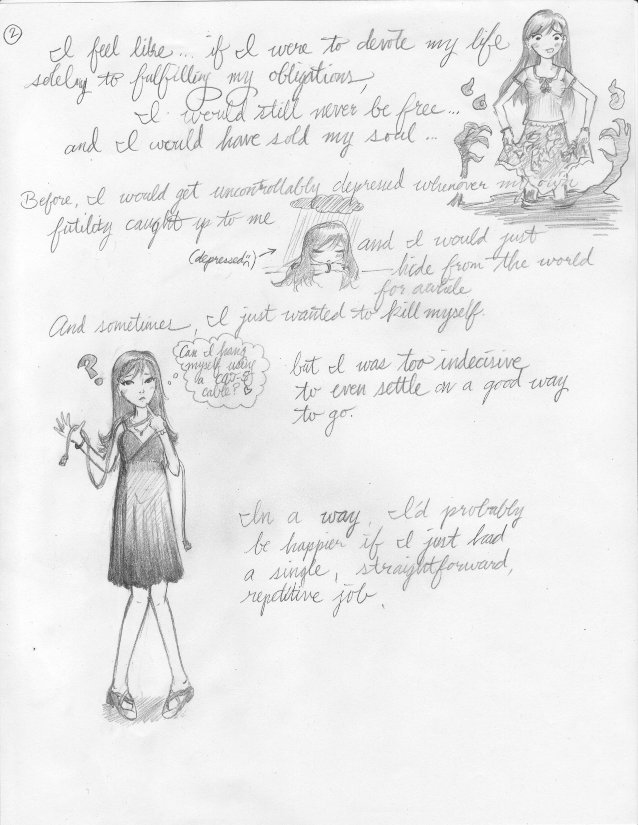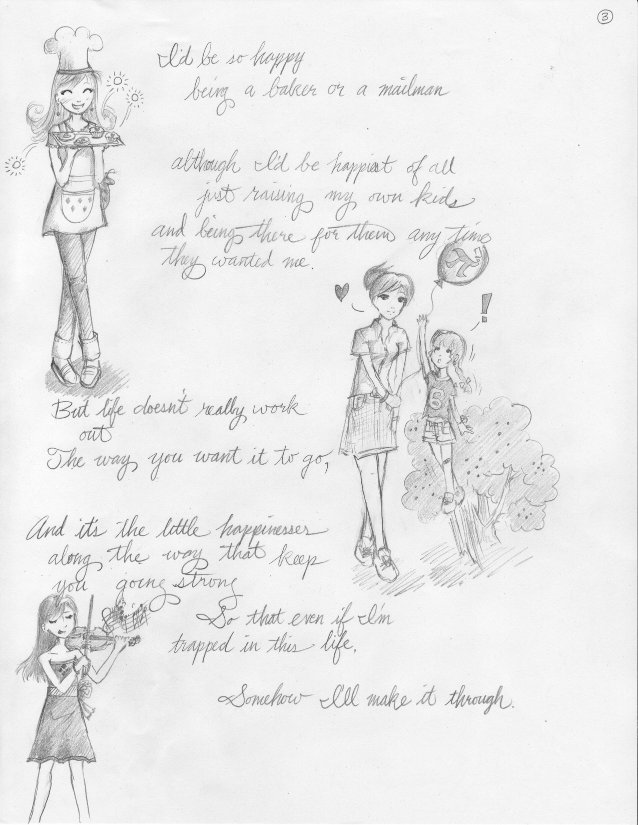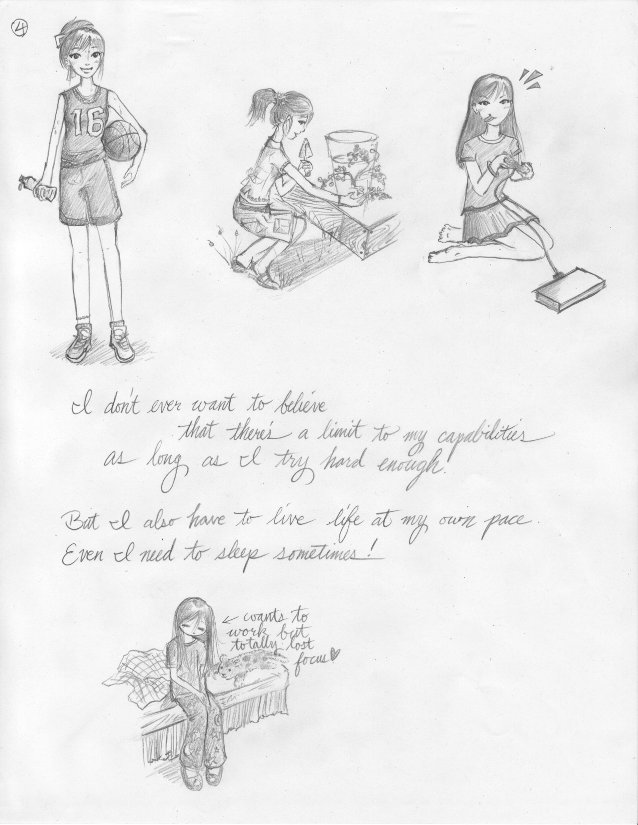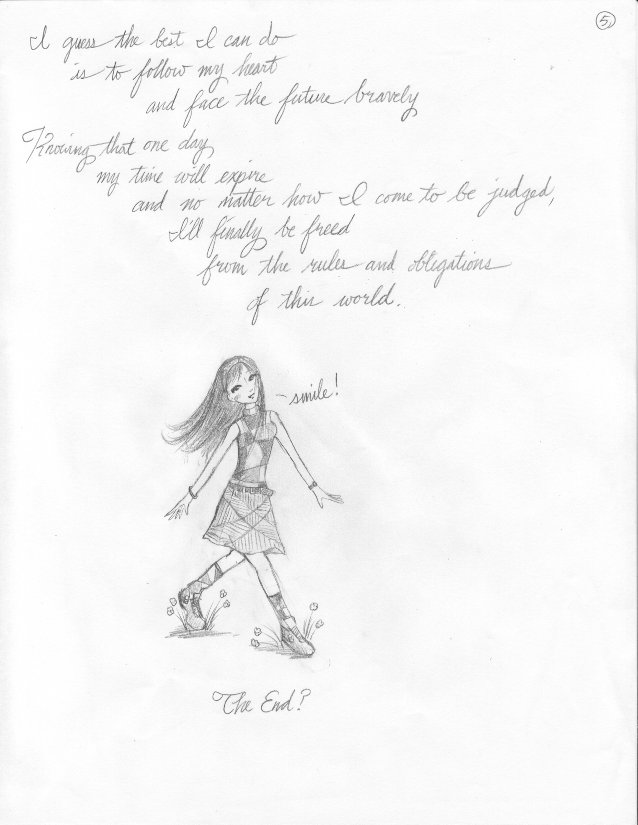Yes, the original creator of some work or technology should be protected from other people trying to profit from non-collaborative, unapproved use of that creator’s work. But that being said, I think that the extremes of so-called “intellectual property” in the modern Western society are bizarre and inappropriate.
Unlike my frying pan, which I rightfully own through the trade of money and which represents a tool and not some link to society or the greater human consciousness, my ideas – my songs, drawings, whatever – are not simply purchased through my earnings in work or service. I would not be much of a composer had I not studied Bach and Brahms and Schoenberg. I would not be much of a cartoonist without being exposed to the work of Kiyohiku Azuma or Rumiko Takahashi.
It is arrogant to think that ideas, which stem from the amalgamation and then fusion and recombination of thought and inspiration from past and present, are so easily demarcated and tangible that they may be analogous to a frying pan. This is as absurd as the idea that a human can “own” a cat. Ideas and living things – and they are largely the same thing – owe their existence to a phenomenal amount of sources. In an ideal situation, they belong to everybody.
It is because there are thieves in this world who seek to counterfeit, people who did not contribute to the idea at all, that we have to have laws about copyright and patents. That is all well and good – I certainly would not want someone selling my music under his or her name for his or her profit. But nothing should be so absolute so as to hamper the progression of knowledge and its applications to human benefit, especially with regards to technology that were not all that innovative in the first place.
As an example of this grotesque culture of greed, in which people who have no intellect to think that there might exist a metaphysical significance to objects attempt to levy ownership over what was never theirs in the first place, I’ll give the example of the Bristol-Myers Squibb taxol fiasco. BMS opposed strongly the entrance of generics into the taxol market. Broadly speaking, taxol was discovered by the US government and belongs to the US people. BMS attempt to patent taxol as delivered with castor oil as an injection. Then, it sued a Canadian generic company (after the 5 year exclusivity period) with a patent it never had and never will have.
All of this for a compound that was never created from human intellect. It is absurd to think of paying the yew trees for it, but if that’s so, then it’s even more absurd to pay humans for the idea (paying for the object is of course reasonable, as it costs money to extract and/or to produce). If anyone owns a patent on taxol, it’s God or Gaia or Mother Earth.
Claiming that taxol is your “intellectual property” is tantamount to the Europeans landing in America and claiming that all the land belonged to them.
Art is the same way, and I intended a long time ago to write about derivative works (fanart, doujinshi, etc.) but I never got around to finishing that entry. An art is generally speaking passed down, directly or indirectly, from some master to some apprentice. There is no artist that I know of who can create works without (a) having things around to look at, (b) training through class or self-teaching, or usually both. Both of these are acts of absorbing outside influence.
Human creation comes from two stages: first, the acquisition of source data, then second, inspiration and transformation of those sources into a final product. No creation and no genius exists without precedent. Here are two cases to underline my point:
1. Takashi Murakami of “superflat” fame created the petal-y design for Louis Vuitton (which I happen to like a lot), but he is hardly the first to use four-petal motifs in art design. Louis Vuitton is foolish to sue artist Nadia Plesner over her not-for-profit fundraising t-shirt logo, which neither promotes counterfeiting (no moreso than Evangelion’s famous “Eila” in place of “Fila”) nor is any more alike to the LV design than Takashi Murakami’s own art draws on Doraemon and Ghibli.
2. Bach was astounding, but he had Palestrina before him, and polyphony dates back centuries farther, back in the days when all harmony was chant in parallel fifths. That Mendelssohn could freely quote Handel and that “a theme by Paganini” became a virtuoso piece for piano, of all ironies – that is a testament to the importance of what amounts to “fanfiction” in the musical world. These days, it is the absurd vogue that you can quote dead people’s music but not live ones’. Quoting anyone straight up is just unintelligent, no matter how you look at it. But the worst is when people claim sole copyright on works that include quotes. The notes belong to no one, and a computer given sufficient time could permute notes to produce the melodies of all songs every written with the twelve Western tones and certainly not own all exclusive rights to their use. Heck, I could do that, too, and technically copyright all non-previously-used melodies. And lawsuits based on copying chord progressions – well, I’m not even going to go there.
All in all, I think that the whole concept of IP and copyright as it stands is outdated and needs to be re-examined. They belong to an era of obsessive possession that runs contrary to the modern themes of inclusivity, cultural awareness, and the trading of ideas. Sites such as Wikipedia have taken an important step by championing the person who contributes work without needing to bask in the glory of one-man/-woman heroism.
The 21st century is about global civilization and the power of multidisciplinary collaboration. It is about time to change our conception of the very nature of ideas to catch up to the post-Imperialist, post-world dominance, post-megacorporation society.
